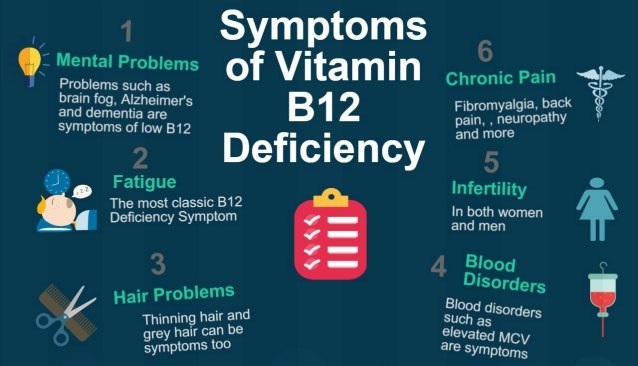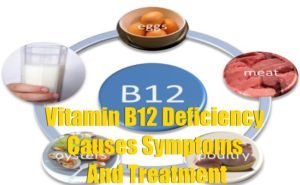
Vitamin B12 Deficiency Treatment
Vitamin B12 may be found in liver, kidney, fish, and fortified milk and helps convert folic acid into its active form. Vitamin B12 is essential to synthesize DNA and promotes cellular division and is required for hematopoiesis (development of red blood cells in bone marrow) and to maintain the integrity of the nervous system. Vitamin B12 is absorbed in the intestine with the aid of an intrinsic factor produced by gastric parietal cells. Once absorbed, vitamin B12 binds to the transcobalamin II protein and is then transferred to tissues.
Vitamin B12 is stored in the liver for up to three years during which time it is slowly excreted in urine. Vitamin B12 deficiency is common in patients who are strict vegetarians and in patients who have malaborption syndromes (cancer, celiac disease), gastrectomy, Crohn’s disease, and liver and kidney diseases.
Vitamin B12 Deficiency Treatment Chart
Dose 100 mg/dL 14 day Pernicious anemia: 40–100 μg/day or 1000 μg/wk x 3 wk
Maintenance Male and female: 3 μg/day Pregnancy: 4 μg/day
Pregnancy category A (C if use doses >RDA)
Deficiency conditions Pernicious anemia, hemolytic anemia, hyperthyroidism, bowel and pancreatic malignancies, gastrectomy, GI lesions, neurologic damage, malabsorption syndrome, metabolic disorders, renal disease
Side effects Occasional: diarrhea, itching
Adverse reactions Rare allergic reaction; may produce peripheral vascular thrombosis, pulmonary edema, hypokalemia, CHF
Contraindications History of allergy to cobalimin; folate deficient anemia, hereditary optic nerve atrophy
Click for vitamins A,B,C,D
